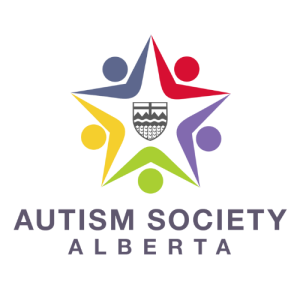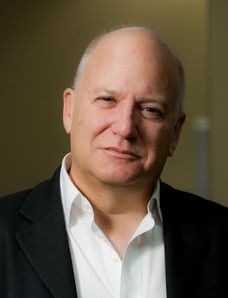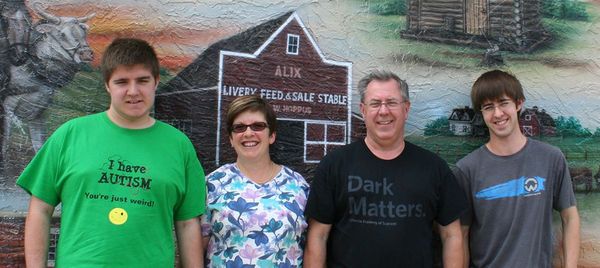Three Stressful Mistakes
 My name is Kitty Parlby. I am:
My name is Kitty Parlby. I am:- the mother of a son with severe autism
- a special needs Educational Assistant
- a speaker/presenter on the subject of autism
- a member of the Board of Directors for Autism Alberta
1. Reading up on and using only one type of autism strategy
Autism Alberta Want To Help!
Or … e-mail me at parlbyrw@telusplanet.net
Autism Alberta has partnerships with Dr. David Nicholas (U of C), Dr. Tony Bailey (UBC) and the Cariboo Chilcotin Child Development Centre to look into ways to better engage individuals with autism and their families in small towns and rural and remote regions.
Jeff’s Marathon Journey – November Update
 Well, it’s done. November 6th has come and gone, and I’m happy to say that I made it safe and sound to New York, and completed 42.2km through the five boroughs in what has been confirmed as the largest marathon ever! Our final tally on the fundraising was $4,407. I’m very happy that I was able to raise these funds, and I’m sure they will go a long way in helping the recently re-branded Autism Society of the Regional Municipality of Wood Buffalo (formerly the Fort McMurray Autism Support Group) as they continue their efforts to make life easier for families affected by life on the Autism spectrum in the region.
Well, it’s done. November 6th has come and gone, and I’m happy to say that I made it safe and sound to New York, and completed 42.2km through the five boroughs in what has been confirmed as the largest marathon ever! Our final tally on the fundraising was $4,407. I’m very happy that I was able to raise these funds, and I’m sure they will go a long way in helping the recently re-branded Autism Society of the Regional Municipality of Wood Buffalo (formerly the Fort McMurray Autism Support Group) as they continue their efforts to make life easier for families affected by life on the Autism spectrum in the region. I left the condo we were staying in near Central Park and walked a couple of blocks before catching the subway. I took the subway for about thirty minutes to the South Ferry terminal, where I waited outside to meet a good friend of mine from my days in Korea, Dave. Dave is originally from New Zealand, and had travelled all the way from Australia to run the marathon. After meeting Dave outside the terminal, we proceeded inside to catch our ferry to Staten Island. The lines were huge and slow-moving. We eventually got on the ferry, and were lucky enough to grab a seat for the thirty-minute ride. After hopping off the ferry, we stood in line in the terminal on Staten Island for about 45 minutes before boarding a bus to the athletes’ village. The bus ride was a slow crawl, taking about an hour before reaching our destination near the base of the Verrazano Narrows Bridge on Staten Island. We had a brief wait again before going through airport-level security and entering the village.
I left the condo we were staying in near Central Park and walked a couple of blocks before catching the subway. I took the subway for about thirty minutes to the South Ferry terminal, where I waited outside to meet a good friend of mine from my days in Korea, Dave. Dave is originally from New Zealand, and had travelled all the way from Australia to run the marathon. After meeting Dave outside the terminal, we proceeded inside to catch our ferry to Staten Island. The lines were huge and slow-moving. We eventually got on the ferry, and were lucky enough to grab a seat for the thirty-minute ride. After hopping off the ferry, we stood in line in the terminal on Staten Island for about 45 minutes before boarding a bus to the athletes’ village. The bus ride was a slow crawl, taking about an hour before reaching our destination near the base of the Verrazano Narrows Bridge on Staten Island. We had a brief wait again before going through airport-level security and entering the village. I crossed the finish line in Central park with a time of 4h:38m:45s. My time was slower than I had hoped – I had set a goal for myself of 4h:12m. I didn’t feel too bad about it, however, as there were some circumstances that I hadn’t accounted for. First, there was the cold I was fighting and the resulting lack of training during my final week. Although I did feel OK through most of the race, I do feel like I could have had a better run had I had a completely clear chest, and managed to keep my legs alive during the final week. The complete lack of sleep the night before was probably as damaging to my time as my cold was. Probably the biggest reason I didn’t reach my time was my low seeding at the start line – which, I’ll admit, was completely my own fault. I entered the lottery for the NYC Marathon over a year ago, and upon doing so I was asked to estimate my finish time if I were selected. At the time, I was fresh off my first ever half-marathon run, and had no idea the gains I would make in fitness in the next twelve months. I entered my estimated time of 4h:45m, which resulted in me being seeded at the start with runners of a similar ability. This was probably the most frustrating part of the race for me – I was forced to stick behind some really slow runners in the first 10 km or so of the race, as there was no room for weaving and passing. By the time I was able to open up and try and catch my pace a little, I was already well off my goal time. After realizing this, I decided to just enjoy the race and not worry about the time.
I crossed the finish line in Central park with a time of 4h:38m:45s. My time was slower than I had hoped – I had set a goal for myself of 4h:12m. I didn’t feel too bad about it, however, as there were some circumstances that I hadn’t accounted for. First, there was the cold I was fighting and the resulting lack of training during my final week. Although I did feel OK through most of the race, I do feel like I could have had a better run had I had a completely clear chest, and managed to keep my legs alive during the final week. The complete lack of sleep the night before was probably as damaging to my time as my cold was. Probably the biggest reason I didn’t reach my time was my low seeding at the start line – which, I’ll admit, was completely my own fault. I entered the lottery for the NYC Marathon over a year ago, and upon doing so I was asked to estimate my finish time if I were selected. At the time, I was fresh off my first ever half-marathon run, and had no idea the gains I would make in fitness in the next twelve months. I entered my estimated time of 4h:45m, which resulted in me being seeded at the start with runners of a similar ability. This was probably the most frustrating part of the race for me – I was forced to stick behind some really slow runners in the first 10 km or so of the race, as there was no room for weaving and passing. By the time I was able to open up and try and catch my pace a little, I was already well off my goal time. After realizing this, I decided to just enjoy the race and not worry about the time. If you’ve donated to the Autism Society of the Regional Municipality of Wood Buffalo, thanks again from the bottom of my heart. The society recently opened an office in downtown Fort McMurray, and are looking at increasing fundraising efforts in order to ensure they can keep it running. The goal of the members is to eventually open a centre for Autism in Fort McMurray similar to those that can be found in larger cities around the province. Kirsti Mardell is a local parent who has taken it upon herself to organize the community and make a push to realize this vision. Any support or donations will go a long way in helping all members of the society, myself and my family included.
If you’ve donated to the Autism Society of the Regional Municipality of Wood Buffalo, thanks again from the bottom of my heart. The society recently opened an office in downtown Fort McMurray, and are looking at increasing fundraising efforts in order to ensure they can keep it running. The goal of the members is to eventually open a centre for Autism in Fort McMurray similar to those that can be found in larger cities around the province. Kirsti Mardell is a local parent who has taken it upon herself to organize the community and make a push to realize this vision. Any support or donations will go a long way in helping all members of the society, myself and my family included.There is still time to support Jeff and the Autism Society of the Regional Municipality of Wood Buffalo! Click here to make a donation for Jeff’s Marathon Journey – We’ll be accepting final marathon donations until the end of Monday, November 28.
Introducing the Peace Autism Society
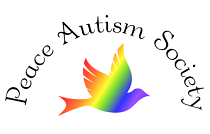
My name is Nicole Collison, and I am the president of the Peace Autism Society. We are a small group run out of the Grande Prairie Area, and although the society has been running for two or three years, I feel that we have only just started building our membership! Our vision statement reads:
 "We see a world where individuals with Autism Spectrum Disorder (ASD) are valued participating members of their community, regardless of their abilities. All individuals have the potential to thrive and succeed when supported by caring and knowledgeable families and professionals."
"We see a world where individuals with Autism Spectrum Disorder (ASD) are valued participating members of their community, regardless of their abilities. All individuals have the potential to thrive and succeed when supported by caring and knowledgeable families and professionals."Fort McMurray Autism Non-Profit Opens with Hopes for Future Centre
 "We evacuated to Red Deer and we were well set up there, and the services we got kicked in right away," said Mardell, president of the Autism Society of the Regional Municipality of Wood Buffalo. "Our kids had support in school right way. It was amazing how fast and supportive the other communities were compared to Fort McMurray.
"We evacuated to Red Deer and we were well set up there, and the services we got kicked in right away," said Mardell, president of the Autism Society of the Regional Municipality of Wood Buffalo. "Our kids had support in school right way. It was amazing how fast and supportive the other communities were compared to Fort McMurray.Read More
Latest News from ASRMWB
-
Selling poinsettias and wreaths for the month of November
-
Movie night on November 19th
-
Dr. Anthony BaileyDisability Day on Nov 26th
-
Christmas market on the December 3rd
-
Christmas party on December 11th
-
Coat check on December 16th
Little Victories
 interested. I didn’t win things – I was at best mediocre at most pursuits where medals are handed out at the end. At worst, I simply didn’t understand how to perform many competitive tasks, particularly those involving some degree of teamwork or cooperation. I have vivid memories of waiting for the rest of the children to pair off during group projects, so that a concerned teacher with sad eyes might ask me if I didn’t mind working alone (a happy outcome) or sitting out (happier yet). More vivid still, of running around a course on track and field day, heart filled with shame and eyes with tears, my lungs burning, long after all the other children had already completed it, my excuse about asthma having been taken as that and that only: an excuse.
interested. I didn’t win things – I was at best mediocre at most pursuits where medals are handed out at the end. At worst, I simply didn’t understand how to perform many competitive tasks, particularly those involving some degree of teamwork or cooperation. I have vivid memories of waiting for the rest of the children to pair off during group projects, so that a concerned teacher with sad eyes might ask me if I didn’t mind working alone (a happy outcome) or sitting out (happier yet). More vivid still, of running around a course on track and field day, heart filled with shame and eyes with tears, my lungs burning, long after all the other children had already completed it, my excuse about asthma having been taken as that and that only: an excuse.The next year, and every year after that, I took an interest in novices – that is, first-year debaters. Being ignored by older, more experienced members of the club had hurt, so I tried, as much as I could, to be what I didn’t have when I was in their shoes – a friend, perhaps even a mentor. Most of my closest friends now are people I met in their first year of university, nervous and unsure and so glad to see a friendly face, even if it was an plodding, stammering oddball like me. C., a mature, intelligent young lady from a Christian family tired of being underestimated for being pretty and looked down on in academia 
 impressed I was, how well he was doing, how much he had improved. I told him how brave it was to go up against debaters with years and years of experience and hold his own, no matter what the score card said. I talked about how hard it was for anxious people like us to stand in front of the room and make our voices heard. I told him the words I probably could have used when I was his age, words I never heard from anyone other than my own mother before the age of 20: “I’m proud of you.” He didn’t say anything for a while and then, quietly so only I could hear, “Thanks, Jessica.”
impressed I was, how well he was doing, how much he had improved. I told him how brave it was to go up against debaters with years and years of experience and hold his own, no matter what the score card said. I talked about how hard it was for anxious people like us to stand in front of the room and make our voices heard. I told him the words I probably could have used when I was his age, words I never heard from anyone other than my own mother before the age of 20: “I’m proud of you.” He didn’t say anything for a while and then, quietly so only I could hear, “Thanks, Jessica.”We Want to Hear From You!
Autism Families with Adult Children in Central Alberta
Let’s get together and share our ideas, strengths and dreams. Hope to connect with you!
Autism is a Disability…
…But People Who Have Autism Have Unique Abilities
If someone is having a hard time, they might be able to calm down by doing something peaceful, like painting a picture or going for a walk. And sometimes people with autism have things that they like very much, like tractors, music or planes. They spend lots of time playing with, listening to or watching these things. Sometimes they will really like to be involved in an activity like swimming or playing an instrument. When it comes to these interests and activities, they should be treated just like everybody else. We all have things that we enjoy doing, and on that level we are all very much alike. Maybe these interests will directly affect their lives later on. For example, if their interest is building with blocks, maybe they will be a construction worker or an engineer. Or if their interest is watching planes, maybe they will become a pilot or an airplane mechanic.
People with autism may sometimes have trouble starting activities by themselves. They may need someone to give them an idea for what to do, or a schedule to tell them what is happening next. My brother definitely works best when he has a schedule. He especially likes school, because his classes are at the same time everyday. It takes repetition to learn new things, but once he’s created a habit he can do it over again easily. When he is doing chores like stacking logs, all he needs to be told is where to get the logs, where to put them, and how to get them there.
People with autism are also very creative: they can come up with an activity that they really enjoy. They can do this by combining other known activities.
Just because they have a disability doesn’t mean they can’t do other things just as well as we can.
Housing Update
Over the next several months I will provide details of a variety of projects and proposals that are being pursued by the Aspires Housing Group of Calgary, including:
 This project is envisioned as a multi-unit residence that will provide independent living units for residents, integrated with market rent units for the general population, that will provide social and community engagement for highly independent individuals who might otherwise be isolated and non-social. This project will include a mechanism to provide funding for ongoing support in the capital design by providing revenue from market rental units as well as retail or commercial spaces. In addition, a rent-free concierge suite would be provided for a caregiver.
This project is envisioned as a multi-unit residence that will provide independent living units for residents, integrated with market rent units for the general population, that will provide social and community engagement for highly independent individuals who might otherwise be isolated and non-social. This project will include a mechanism to provide funding for ongoing support in the capital design by providing revenue from market rental units as well as retail or commercial spaces. In addition, a rent-free concierge suite would be provided for a caregiver. To provide a short-term program for transitional housing, ten university residence units would be leased on a weekly basis from the University of Calgary. Participants would spend five days living and working with up to 19 other individuals to get some practical experience in the requirements for independent living. Offsite programing can be provided by the Ability Hub.
To provide a short-term program for transitional housing, ten university residence units would be leased on a weekly basis from the University of Calgary. Participants would spend five days living and working with up to 19 other individuals to get some practical experience in the requirements for independent living. Offsite programing can be provided by the Ability Hub.More Than Just A Fence
When Community Collaboration Changes Lives
Wandering is a common feature among kids with autism. Wandering, bolting, or running away can be extremely dangerous for the individual and absolutely terrifying for parents and guardians, who often unfairly blame themselves for contributing to the behaviour. If the individual has any difficulties with communication or social interaction, the risk of danger increases significantly.
This family had just moved into a house with a spacious yard where the girls might play, but there was a catch… the yard had no fence and they couldn’t afford to build one. Adding to that was a very busy main street just outside their door – so the risk factor for the children was huge.

“In the middle of the night they get up,” the girls’ mother said. “They can even open the door- that’s why we’re scared. They are very fast.”
“How many times they almost got hit by a car… it’s my nightmare. Every second they have to be in front of my eyes. Every day and night.”
The family’s school counsellor wasn’t sure what to do and had reached out to us in case we could help. In turn, we called a local company we were connected with, to see if they had any ideas.
The company, Align Fence, generously offered to build the family a fence so the kids would stay safe. Coincidentally, they also happened to have two adult employees who are on the spectrum themselves!
We were able to connect the family with Align Fence to get the project started. They invited us out to meet Brad and Jamie, the two crew members with autism, and watch them put up the fence.
While the crew installed the fence, we chatted with Brad and Jamie’s proud parents…
Brad’s father, Paul, who also works for Align Fence, was thrilled to see his son working, gaining confidence and increasing his employable skills.
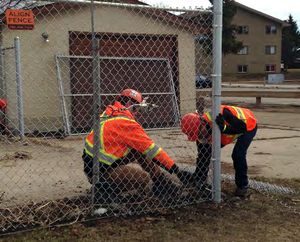
Brad is a man of few words, but he seems to like what he does at Align Fence. “It’s pretty good,” he said with a wide smile. “No complaints.”
Paul said there have been surprisingly few problems with communication on site between crew members, despite the fact that Brad’s on the spectrum and Jamie’s deaf.
“If I was to go anywhere – say Taiwan or Cambodia – I would not be able to understand and I would have to go back to gesturing,” Paul told me. “Working with Jamie has made me better at gesturing because I know what he’s looking for. It doesn’t have to be just speech or writing things down… a point, a sign, anything can work.”
“As soon as he understands, he’s eager to get going on it.”
